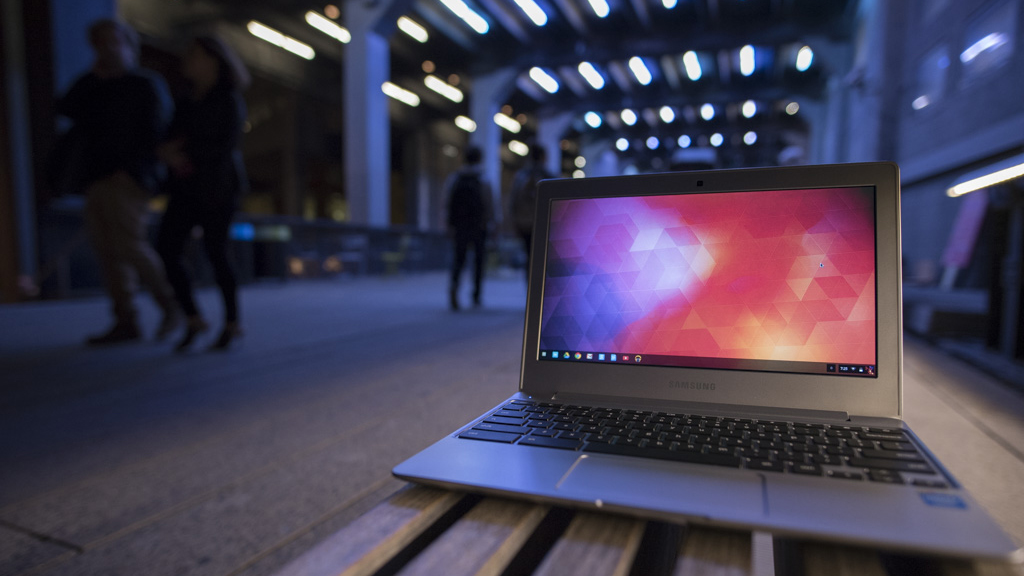The only things that can stop the Chromebook are you and Google
It's not the product, it's the perception

Sign up for breaking news, reviews, opinion, top tech deals, and more.
You are now subscribed
Your newsletter sign-up was successful
For a long time, Chromebooks seemed like they would fizzle, and for just the reasons you might expect. People called them under-powered, said they didn't run the software they depended on, and that there was just no compelling reason to buy one over a cheap Windows or Linux laptop. For a while, we got one Chromebook at a time, made by different manufacturers - not unlike how Google's Nexus brand is applied to smartphones and tablets made by a succession of manufacturers.
But little by little, the Chromebook has gained momentum and diversified, and now ABI Research forecasts that a little over four million Chromebooks will be sold this year (compared to 300m conventional laptops). Four against 300 doesn't sound like much, but this would probably be a doubling of Chromebook sales over the previous year - while conventional laptop sales are predicted to fall from 316m according to ABI.
For the most part, Chromebooks seem to be being bought by the education market, and they're doing great things there. When even one of the smartest and strongest advocates for the iPad in education, Fraser Speirs, records an episode of his podcast called The Case for Chromebooks, you should be thinking at least that there's potential here.
The question still gets asked, though: what will it take for the Chromebook to go mainstream? It's a question that assumes Google has to change the Chromebook to make it attractive to the mass market, and I think that's the wrong perspective. I think the market has to change.
It's not them, it's you
A Chromebook is already a good option for the mass market. For home users, it's simple, reliable, robust and likely not as susceptible to viruses as a Windows machine. If most of us actually stop to think about it, the majority of what we use a computer for these days can already be done in a browser window. That's in part because of how much time we spend on websites (such as Facebook and Twitter), and in part because web versions of apps such as Word are finally rich and responsive enough to be usable.
What's more, many of those jobs that we currently don't do in a browser could be done in a browser with minimal disruption if we wanted to. Besides, some interesting things are happening such as the streaming version of Photoshop which brings the full, complete power of Photoshop to a Chromebook while doing all the heavy lifting on a server somewhere. It's trickier in some businesses, but for others - especially sole traders and SMBs who might be well served by or even already be using Google Apps for Work - a Chromebook could be not just a usable trade-off but actually the best tool for the job.
Still, you might say, why should I buy a Chromebook to do these things when I can just install Chrome on my PC or Mac and not have the same compromises? Well, it's true you won't have the same compromises, but you will have compromises. The system is more complex and so liable to failure, it's a bigger target for malware. And of course there's price: for the most part, Chromebooks just are cheap.
Sign up for breaking news, reviews, opinion, top tech deals, and more.
The problem for Chromebooks isn't anything to do with the hardware or the software. The problem is you - or rather, it's the market. Many people just assume that a Chromebook won't be good enough for them. The problem as always for any product trying to establish itself against entrenched competitors is trying to make people aware of it a viable option.
Few people will have heard of Chromebooks, fewer still will be aware what a Chromebook is, even fewer than that will have the reason and motivation to find out why they might want one, and fewest of all will have the knowledge and gumption then to buy one after a pubescent youth in a branded polo shirt tells them they should probably just stick to Windows. (Said youth might actually have good reason to do that, but might also be lazy and ill-educated, or have been instructed to sell a Windows-specific after-sales support package to bolster narrow margins.)
A matter of faith
Google, then can do something to make the Chromebook go mainstream: advertise, and galvanise discussion and interest. And to be fair it has been doing some of that, especially in its strong 'For everyone' campaign. It's possible, though, that Google either hasn't worked out or can't decide if it actually even wants Chrome OS to go mainstream.
This might seem like an odd thing to say, since surely all companies want their product to appeal to as many people as possible, but Google's strategy on operating systems is still muddied and unresolved. The roles for and the lines between Chrome OS and Android are becoming increasingly blurred, partly through the centralising effects of the cloud, but also through initiatives such as the one which lets some Android apps run right on Chrome OS.
The charitable interpretation is that Google is hedging its bets, but the more likely is that whatever strategy it has is tying itself in knots. And until Google decides whether or not it wants to make the Chromebook a mass-market hit itself, it's up to the mass-market to make it one.
But it might never get over its prejudices.